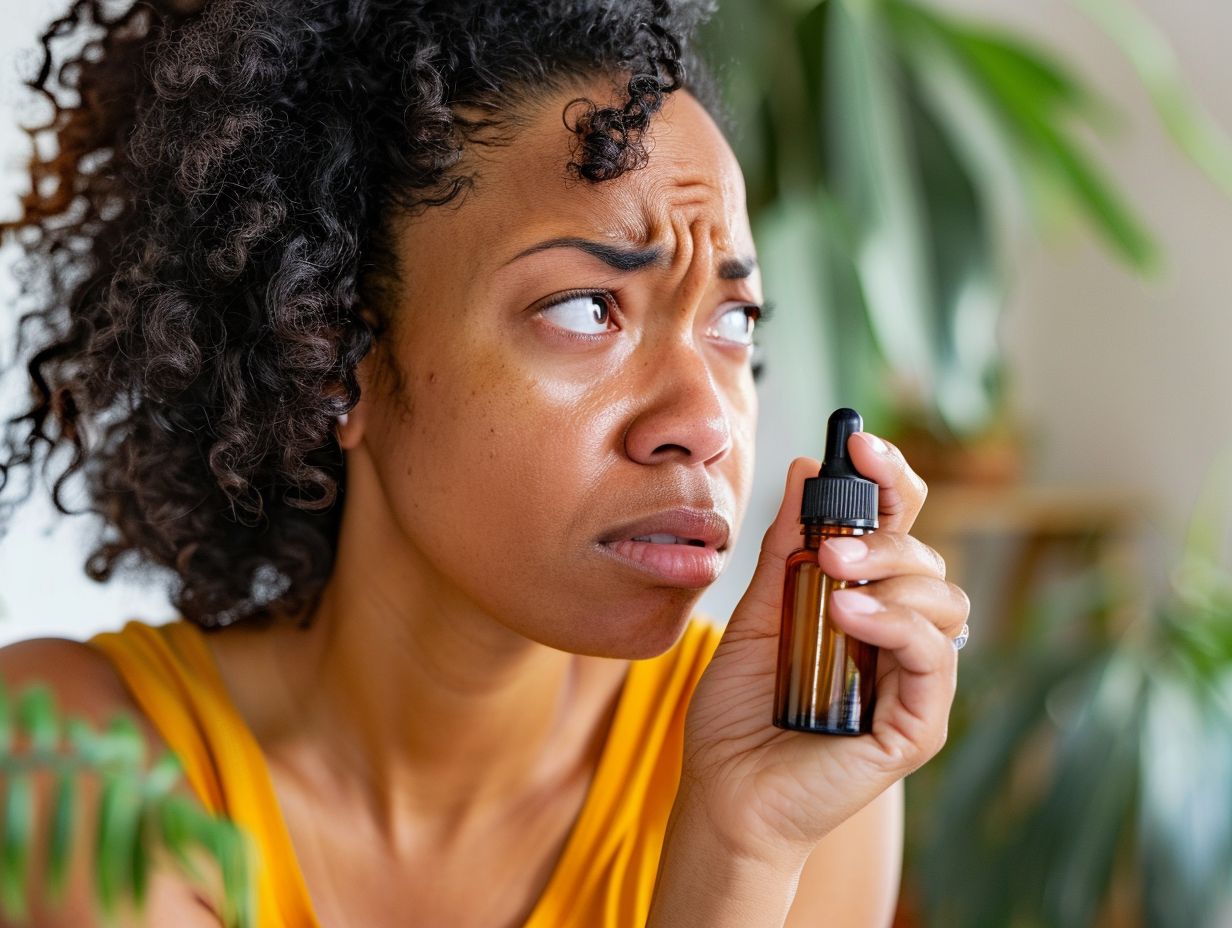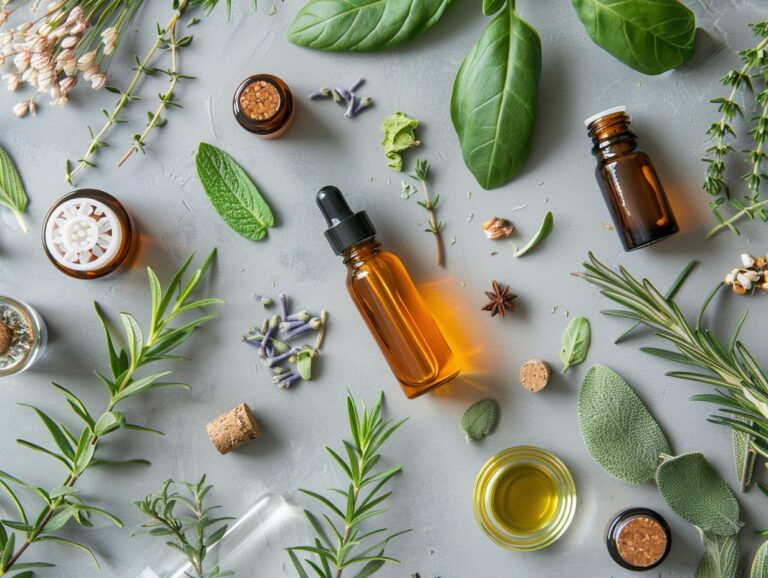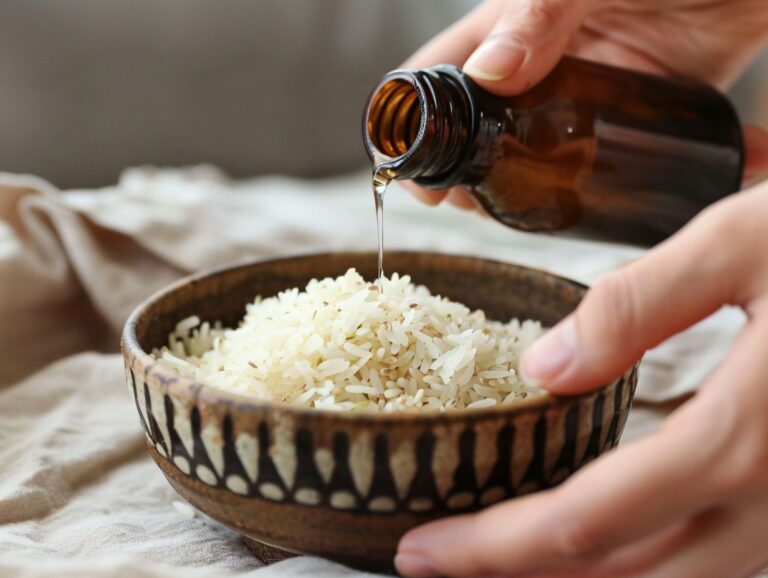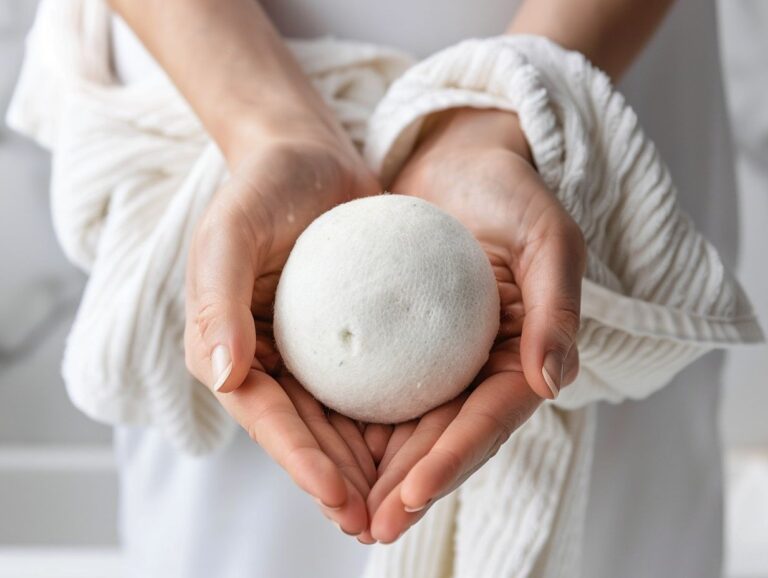Are Essential Oils Placebo
Have you ever wondered what essential oils are and how they actually work?
We will explore the different types of essential oils, including aromatherapy oils, carrier oils, and infused oils.
Discover the potential benefits of essential oils, such as relieving stress, improving sleep quality, boosting the immune system, and reducing inflammation.
Learn about the risks and side effects of essential oils, like skin irritation, allergic reactions, and interactions with medications.
Get tips on how to use essential oils safely and effectively.
Stay tuned to learn more!
Key Takeaways:
What Are Essential Oils?
Essential oils are natural aromatic compounds extracted from plants through distillation or cold pressing. These oils capture the plant’s scent and flavor, also known as its essence.
This extraction process involves taking the plant’s flowers, leaves, bark, stems, or roots and using steam distillation or mechanical pressing to extract the oils. Steam distillation is the most common method, where steam is passed through the plant material, causing the essential oil to evaporate and then condense into a liquid form. Cold pressing, on the other hand, is used for citrus oils like lemon or orange, where the peel is pressed to release the aromatic oils.
How Do Essential Oils Work?
Essential oils work through the interaction of their natural compounds with the olfactory system, which includes the brain’s response to specific odors, affecting both psychological and physiological functions.
When inhaled, essential oils release aromatic molecules that bind to olfactory receptors in the nasal cavity, sending signals to the brain’s limbic system. This ancient part of the brain is responsible for emotions, memories, and behavior.
The complex compositions of essential oils, such as terpenes and phenols, can trigger various reactions. For instance, linalool, found in lavender oil, has calming properties that can help relax the mind, while limonene from citrus oils can uplift mood and boost energy.
What Are the Different Types of Essential Oils?
Essential oils can be categorized into various types, including aromatherapy oils like lavender and Frankincense, known for their calming and therapeutic properties, and oils like thyme used for their antiseptic benefits.
Other popular essential oils fall under categories such as citrus oils, floral oils, and herbal oils.
- Citrus oils like lemon and orange are commonly used for their uplifting and energizing effects.
- Floral oils such as rose and jasmine are prized for their romantic and mood-enhancing qualities.
- Herbal oils like eucalyptus and peppermint are often utilized for their respiratory benefits and cooling sensations.
Aromatherapy Oils
Aromatherapy oils, such as lavender oil, are extensively used in stress relief and relaxation practices due to their calming effects on the mind and body.
One of the significant benefits of incorporating lavender oil in aromatherapy is its ability to reduce stress and anxiety levels. The soothing scent of lavender can help in calming the nervous system and promoting a sense of tranquility.
When used in massage or diffused in the air, lavender oil can aid in improving sleep quality, which is essential for managing stress. Its natural properties also make it a popular choice for promoting relaxation and unwinding after a hectic day.
- Plus its psychological benefits, lavender oil can also help in alleviating physical symptoms of stress, such as tension headaches and muscle aches.
- With its gentle and pleasant aroma, lavender oil is a versatile tool in stress management, whether used in a diffuser, bath, or applied topically in diluted form.
Carrier Oils
Carrier oils like lemon oil are commonly used to dilute essential oils and can offer additional benefits, such as helping with acne-prone skin due to their antibacterial properties.
Regarding acne treatment, diluting essential oils with carrier oils like lemon oil is particularly beneficial. Lemon oil is known for its astringent properties, which help reduce excess oil production and unclog pores – key factors in controlling acne. By diluting lemon oil with a carrier oil, such as jojoba or coconut oil, it ensures that the potent essential oil is not too harsh on the skin, minimizing the risk of irritation while still delivering its acne-fighting benefits.
Infused Oils
Infused oils like rosemary oil are known for their anti-inflammatory properties, making them beneficial for conditions such as muscle soreness and joint pain.
These oils work by reducing inflammation in the body, which can help alleviate pain and discomfort. The anti-inflammatory properties of rosemary oil can also promote circulation and stimulate the healing process in affected areas. When applied topically, the oil can penetrate deep into the skin, reaching the source of pain more effectively.
Plus reducing inflammation, rosemary oil is rich in antioxidants that help combat free radicals, further supporting its anti-inflammatory benefits. This natural approach to pain relief can be a gentle yet effective alternative to traditional over-the-counter medications.
Can Essential Oils Have a Placebo Effect?
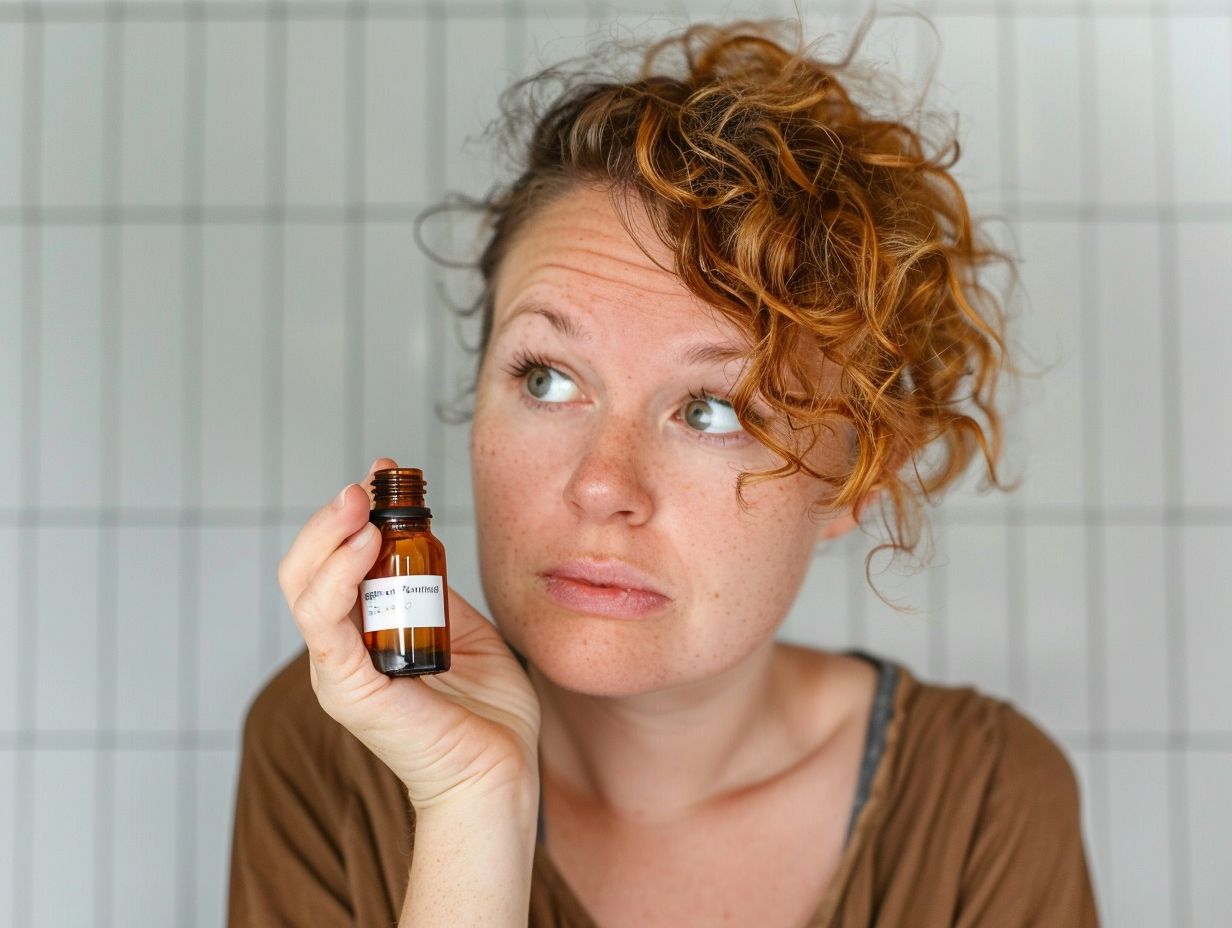
Placebo responses in essential oil studies often stem from the intricate interplay between psychological factors and the mind-body connection. For instance, individuals may experience reduced pain or enhanced well-being simply due to their belief in the healing powers of certain scents, regardless of the oils’ actual chemical composition.
Methodological considerations play a crucial role in deciphering the impact of placebos on essential oil therapies. Proper blinding techniques and control groups are essential to tease apart the genuine effects of aromatherapy from the placebo responses elicited by expectations or biases.
Understanding the placebo effect in essential oil research has significant implications for healthcare practices. It underscores the importance of comprehensive analysis in clinical trials to differentiate between true therapeutic benefits and placebo-induced outcomes, ultimately enhancing the credibility and effectiveness of utilizing essential oils in treatments.
What Is the Placebo Effect?
The placebo effect is a psychological phenomenon where an individual’s condition improves after receiving a treatment that has no therapeutic effect, solely based on the belief that it will work.
Research suggests that the placebo effect operates through complex psychological mechanisms, such as the activation of brain regions involved in pain modulation and reward processing. This phenomenon highlights the profound influence of mind-body interactions on health outcomes. Patients’ expectations, conditioning, and the therapeutic context play vital roles in enhancing the placebo response. Understanding the placebo effect is crucial in medical research as it underscores the importance of comparing treatment effects against a control group to distinguish genuine therapeutic effects from placebo responses.
How Does the Placebo Effect Work?
The placebo effect operates through complex interactions between the mind and body, influencing how subjects respond to a given treatment even when the treatment itself holds no therapeutic value.
This phenomenon showcases the profound influence of psychological factors on physical well-being. When a person believes they are receiving a beneficial treatment, their brain releases endorphins, dopamine, and other neurochemicals that can trigger real physiological responses. This suggests that our perceptions and expectations can activate a cascade of biological processes, leading to pain relief, reduced inflammation, or improved mood, all without the presence of any active medicinal compounds. In essence, the mind has the power to initiate healing mechanisms within the body through belief alone.
What Are the Factors That Influence the Placebo Effect of Essential Oils?
Several factors can influence the placebo effect of essential oils, including the context in which the treatment is administered, the individual’s belief in the treatment, and the specific outcomes studied in research.
The way essential oils are delivered, whether through inhalation, topical application, or ingestion, can also play a role in shaping the placebo response. Previous studies have indicated that the sensory experience associated with using essential oils, such as their aroma and texture, can influence the perception of their efficacy. The expectations set by the healthcare provider or the overall study design can impact how individuals respond to essential oil treatments. Placebo responses can vary based on the type of condition being treated, further highlighting the complexity of studying the placebo effect.
What Are the Potential Benefits of Essential Oils?
Essential oils offer a wide range of potential benefits, from relieving stress and anxiety to reducing inflammation and promoting overall well-being.
One significant advantage of essential oils is their ability to provide stress relief. Aromatherapy using oils such as lavender or chamomile can help calm the mind and body, creating a sense of relaxation and peace.
In addition, the anti-inflammatory properties of essential oils can aid in reducing swelling and discomfort associated with various conditions, such as arthritis or skin irritations. Oils like peppermint or eucalyptus have been shown to have soothing effects on inflammation.
Essential oils are known for their ability to support the immune system. Oils like tea tree or lemon have natural antimicrobial properties that can help fight off pathogens and boost the body’s defense mechanisms.
Relieving Stress and Anxiety
Essential oils, especially lavender, are renowned for their ability to alleviate stress and anxiety, promoting relaxation and emotional well-being.
Lavender essential oil is widely used in aromatherapy for its calming and soothing effects on the mind and body. It has been shown to reduce heart rate and blood pressure, inducing a sense of calmness and tranquility.
Inhaling lavender oil triggers the release of neurotransmitters like serotonin, which helps in elevating mood and relieving stress. This natural remedy is known for its properties in reducing cortisol levels, the hormone responsible for stress, making it a valuable tool in stress management.
Incorporating lavender essential oil into your daily routine through diffusers, massages, or baths can significantly improve overall mental health and well-being, providing a holistic approach to relaxation and quality sleep.
Improving Sleep Quality
Certain essential oils, when used in aromatherapy or diffused before bedtime, can improve sleep quality by promoting relaxation and creating a calming environment conducive to restful sleep.
By incorporating the soothing scents of lavender, chamomile, or cedarwood into your bedtime routine, you can signal to your body that it’s time to unwind and prepare for sleep. These essential oils have been shown to reduce stress, anxiety, and promote a sense of tranquility, which are essential for falling asleep easily.
Diffusing a blend of ylang ylang and bergamot before going to bed helps to lower cortisol levels, the stress hormone that can disrupt sleep patterns. This aromatic combination induces a feeling of calmness, making it easier to drift off into a deep and restorative slumber.
Boosting Immune System
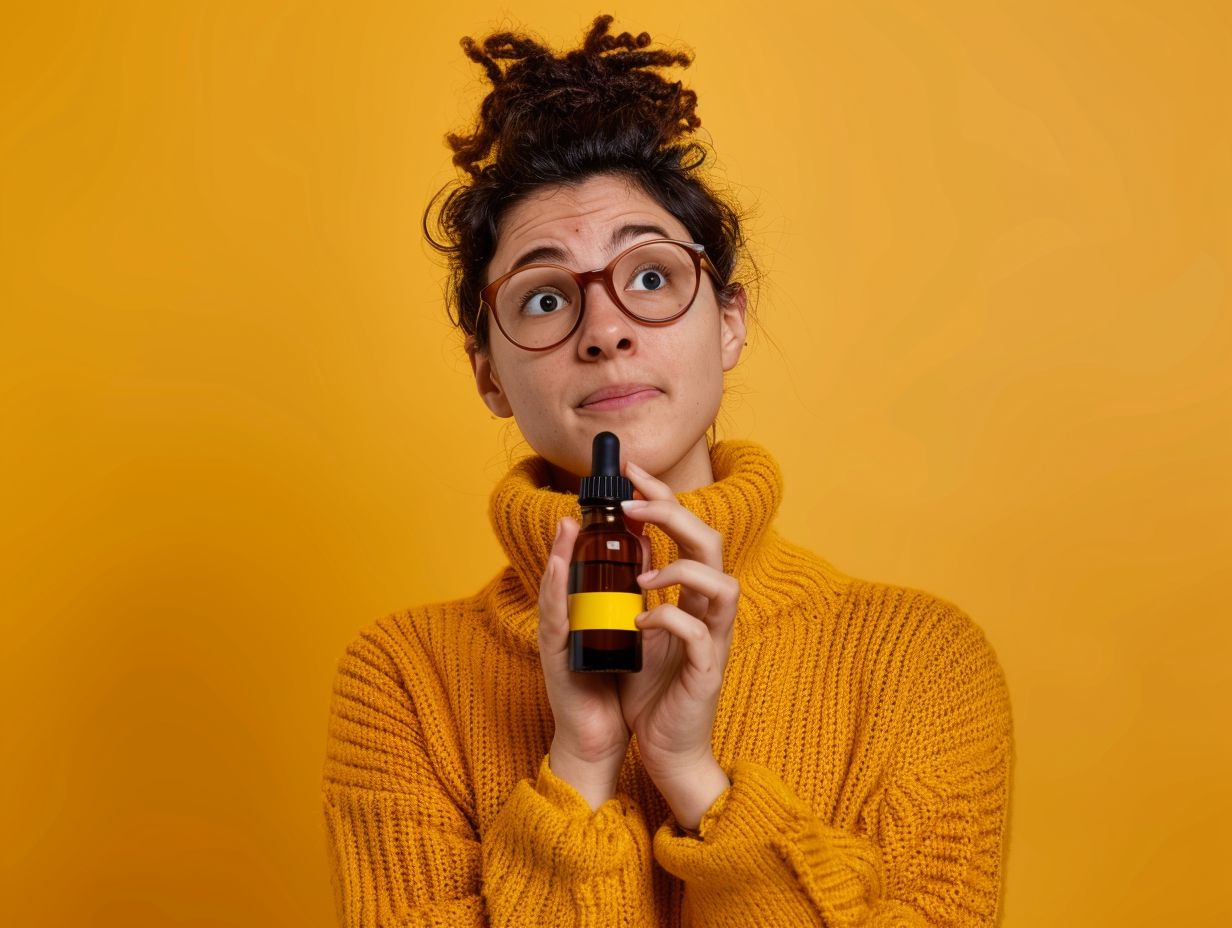
Certain essential oils like peppermint, eucalyptus, and tea tree oil are known for their ability to clear congestion and ease respiratory issues, which can further contribute to a strong immune response.
The practice of using essential oils for immune support goes back centuries, with cultures around the world recognizing their healing properties. Whether diffused, applied topically, or ingested in a controlled manner, these potent oils can play a significant role in maintaining overall well-being and supporting the body’s resilience against various illnesses.
Reducing Inflammation
Certain essential oils possess anti-inflammatory properties that can help reduce inflammation and alleviate pain, offering a natural alternative for managing inflammatory conditions.
These essential oils work by targeting specific pathways in the body that are involved in the inflammatory response, such as COX-2 and cytokines, which can help to modulate the body’s immune response and decrease inflammation.
- Common anti-inflammatory essential oils include lavender, eucalyptus, peppermint, and ginger, each with their own unique properties that make them effective in reducing pain and inflammation.
They can be used in various ways, such as through topical application, inhalation, or adding a few drops to a warm bath, providing a versatile and holistic approach to managing inflammatory conditions.
What Are the Risks and Side Effects of Essential Oils?
While essential oils are generally safe when used correctly, they can pose risks such as skin irritation, allergic reactions, and interactions with certain medications.
It is important to note that essential oils are highly concentrated plant extracts, which can be too potent for direct application to the skin without proper dilution. Direct contact with undiluted essential oils can lead to adverse reactions such as redness, itching, or even burning sensations on the skin.
Individuals with sensitive skin or pre-existing skin conditions such as eczema or dermatitis are particularly susceptible to these side effects. Some essential oils contain compounds that may cause phototoxic reactions when exposed to sunlight, leading to skin damage or discoloration.
Skin Irritation
Essential oils, if not properly diluted or applied, can cause skin irritation and allergic reactions in some individuals, emphasizing the importance of patch testing and proper usage.
When using essential oils, it is crucial to be aware of potential allergic responses and sensitivities that can arise, especially when certain oils come into direct contact with the skin. Allergic reactions may manifest as redness, itching, or even swelling, indicating a need to discontinue use immediately.
Patch testing is a recommended method to assess individual skin tolerance to a specific oil before full application. Incorporating carrier oils can help reduce the risk of skin irritation by diluting the potency of essential oils. Remember, always follow recommended guidelines for safe application and consult a dermatologist if any concerns arise.
Allergic Reactions
Individuals with allergies may experience adverse reactions to certain essential oils, necessitating caution and awareness of potential allergens to prevent unwanted side effects.
Essential oils contain various chemical components that can trigger allergic reactions in sensitive individuals. Some common allergenic compounds found in essential oils include linalool, limonene, eugenol, and geraniol.
Certain essential oils can also cause cross-sensitivities in individuals who are allergic to related substances. For example, if someone is allergic to a specific plant or pollen, they may also react to essential oils derived from that plant.
To identify and manage allergies to essential oils, it is essential to conduct patch tests before using them topically and to dilute oils properly to reduce the risk of skin irritation. If an allergic reaction occurs, immediate discontinuation of use and seeking medical advice are recommended.
Interactions with Medications
Essential oils can interact with certain medications, either enhancing or diminishing their effects, underscoring the importance of consulting healthcare professionals before using oils alongside prescribed drugs.
When essential oils are used in conjunction with medications, there is a risk of adverse effects due to potential interactions between the compounds. These oils can influence the way drugs are metabolized in the body, affecting their efficacy and safety. For example, some oils may inhibit or induce enzymes responsible for drug metabolism, leading to either increased or decreased drug concentrations in the blood.
Caution is advised when combining essential oils with pharmaceuticals, as the consequences can range from reduced drug effectiveness to serious health complications. It is crucial to seek guidance from a healthcare provider to ensure safe and appropriate usage.
How to Use Essential Oils Safely and Effectively?
To maximize the benefits of essential oils and minimize risks, it is essential to use them safely and effectively by following dilution guidelines, avoiding sensitive areas, and conducting patch tests before widespread application.
When diluting essential oils, always use a carrier oil such as coconut or jojoba oil to reduce skin irritation. The typical dilution ratio is 2-3 drops of essential oil per teaspoon of carrier oil for adults, and even less for children and seniors. It’s also crucial to store essential oils in dark, glass bottles away from direct sunlight to maintain their potency. When applying essential oils topically, massage gently into the skin rather than rubbing vigorously. For individuals with sensitive skin or respiratory conditions, it’s advisable to stick to milder essential oils like lavender or chamomile.
Frequently Asked Questions
Are Essential Oils a Placebo?
No, essential oils are not a placebo. They have been scientifically proven to have therapeutic benefits and can provide physical, emotional, and mental support.
What is a Placebo?
A placebo is a substance or treatment that has no active ingredients but is given to a patient with the belief that it will have a therapeutic effect. It is often used in medical studies as a control group.
How do Essential Oils Work?
Essential oils work through inhalation or topical application and interact with the body on a chemical level to produce therapeutic effects. They can also affect the limbic system, which is responsible for our emotions and memories.
Do Essential Oils Have Any Scientific Evidence?
Yes, there is scientific evidence that supports the effectiveness of essential oils. Numerous studies have been conducted on their therapeutic properties, and many health professionals integrate essential oils into their practice.
Can Essential Oils Help with Specific Health Conditions?
Yes, essential oils can help with specific health conditions such as headaches, digestion issues, and stress. However, it is important to use them as a complementary therapy and consult with a healthcare professional for any serious medical conditions.
Are Essential Oils Safe to Use?
Essential oils are generally safe to use when used properly. However, it is crucial to follow proper dilution guidelines and use caution with certain oils, such as during pregnancy or for children. It is always best to do your research and consult with a certified aromatherapist before use.


